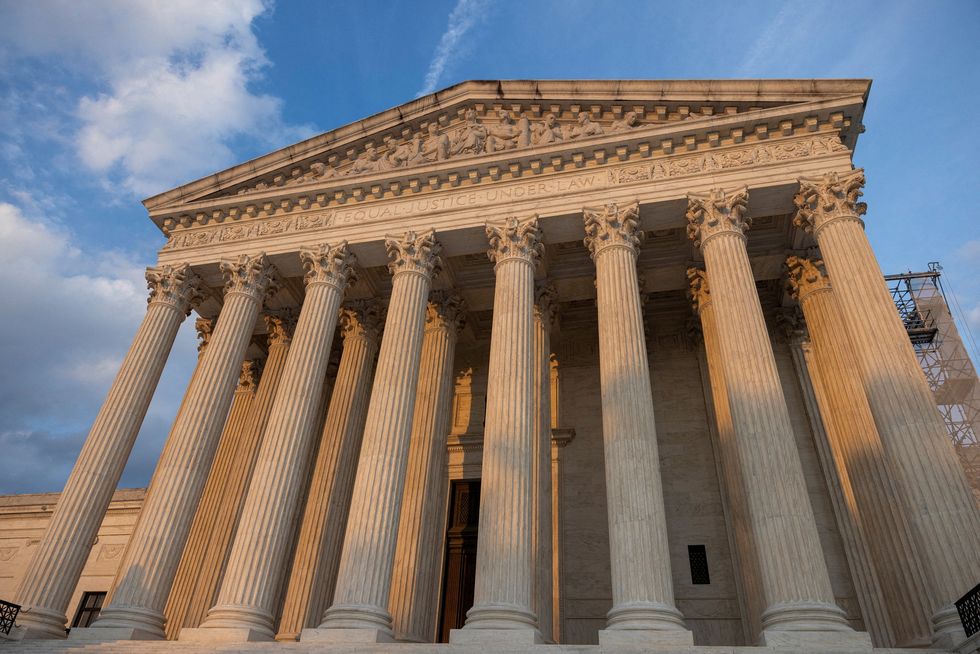Top Stories
Trump’s Court Battles Over National Guard Could Reshape Power

UPDATE: In a pivotal legal showdown, President Donald Trump faces significant challenges regarding his deployment of the National Guard in American cities, a move that critics warn could pave the way for unchecked presidential authority. The latest developments come as courts in Portland, Los Angeles, and Chicago grapple with the implications of Trump’s controversial actions.
Trump’s administration has mobilized the National Guard amidst rising tensions, igniting fears among citizens of a military presence on American streets. This situation not only raises concerns about public safety but also about the potential for voter suppression in the run-up to the 2026 midterm elections. Legal experts warn that if Trump’s rationale for “federalizing” the National Guard is upheld, he could gain unprecedented power to deploy military forces at will.
In California, Trump invoked a statute to justify the National Guard’s deployment, despite objections from Governor Gavin Newsom. The state sought a temporary restraining order, which was initially granted, but Trump’s legal team quickly appealed, claiming his decisions were beyond judicial scrutiny. A crucial ruling from the Ninth Circuit Court of Appeals determined that while the president has “a great level of deference,” his power is not absolute.
In a striking rebuttal, Federal District Court Judge Karin Immergut, also a Trump appointee, emphasized that Trump’s claims were “untethered to the facts,” ultimately siding with the state’s argument against the military deployment. The Ninth Circuit’s decision, however, reversed her ruling, emphasizing a troubling disregard for factual evidence and reinforcing Trump’s narrative of absolute authority.
Meanwhile, in Chicago, the Seventh Circuit Court of Appeals unanimously upheld a trial judge’s order blocking the National Guard’s deployment, directly contradicting Trump’s assertions of unrestrained power. Judges from various political backgrounds agreed that the president’s claims lacked substantial grounding, highlighting a rare moment of bipartisan judicial consensus.
As of September 22, 2023, Trump has appealed to the U.S. Supreme Court, where expectations of favorable rulings loom large due to the conservative majority. His legal team describes the Seventh Circuit’s ruling as a “disturbing and recurring pattern” of judicial overreach, but critics argue it is Trump’s own fabrications that threaten democratic norms.
These developments have profound implications for the balance of power in the United States. As fears escalate over the militarization of American cities, the potential for these court cases to redefine the limits of presidential authority grows increasingly urgent. Citizens and lawmakers alike are closely monitoring the situation, as the fallout from these legal battles may reshape the landscape of governance and civil liberties for years to come.
The next steps are critical. Legal analysts are watching for the Supreme Court’s response to Trump’s appeal, which could either reinforce or dismantle the judicial checks on presidential power. As this situation unfolds, the stakes remain high, not only for Trump’s political future but for the very foundational principles of American democracy.
Stay tuned for further updates as this story develops.
-

 Science6 days ago
Science6 days agoInventor Achieves Breakthrough with 2 Billion FPS Laser Video
-

 Top Stories1 week ago
Top Stories1 week agoCharlie Sheen’s New Romance: ‘Glowing’ with Younger Partner
-

 Entertainment1 week ago
Entertainment1 week agoDua Lipa Aces GCSE Spanish, Sparks Super Bowl Buzz with Fans
-

 Business1 week ago
Business1 week agoTyler Technologies Set to Reveal Q3 Earnings on October 22
-

 World2 weeks ago
World2 weeks agoR&B Icon D’Angelo Dies at 51, Leaving Lasting Legacy
-

 Entertainment1 week ago
Entertainment1 week agoMother Fights to Reunite with Children After Kidnapping in New Drama
-

 Health1 week ago
Health1 week agoCurium Group, PeptiDream, and PDRadiopharma Launch Key Cancer Trial
-

 Health2 weeks ago
Health2 weeks agoCommunity Unites for 7th Annual Into the Light Walk for Mental Health
-

 Entertainment2 weeks ago
Entertainment2 weeks agoRed Sox’s Bregman to Become Free Agent; Tigers Commit to Skubal
-

 Science1 week ago
Science1 week agoNorth Carolina’s Biotech Boom: Billions Invested in Manufacturing
-

 Health1 week ago
Health1 week agoNorth Carolina’s Biotech Boom: Billions in New Investments
-

 Top Stories2 weeks ago
Top Stories2 weeks agoDisney+ Launches Chilling Classic ‘Something Wicked’ Just in Time for October









